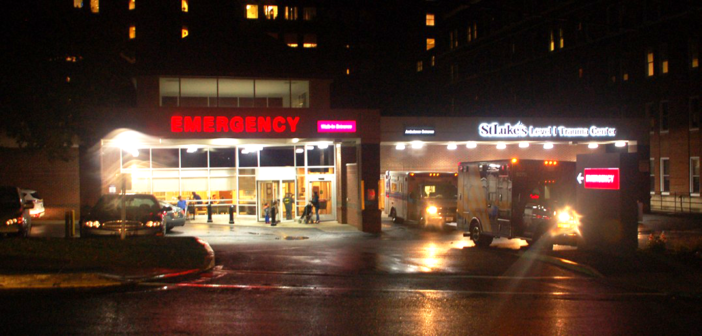Access to health care and health services is an issue many people in the Bethlehem community are struggling to get, though the city and the state of Pennsylvania are still faring better than other parts of the country.
While about 19 percent of Bethlehem residents live below the poverty line, compared to the national rate of about 15.5 percent, the city’s uninsured percentage of 4.5 percent is significantly lower than state and national averages at 10.1 percent and 12.5 percent, respectively, according to the 2016 Community Health Needs Assessment.
Even though the numbers are better than the national average, access to health care is still an issue in Bethlehem, according to Samuel Kennedy, the director of Corporate Communications at St. Luke’s University Health Network, and Victoria Montero, the manager of the Health Equity Initiative at St. Luke’s Hospital and the executive director of the Hispanic Center of the Lehigh Valley. Kennedy and Montero said the data does not account for the illegal immigrant population in Bethlehem who cannot apply for health care.
However, health insurance doesn’t equate to access to health care, said Kristen Wenrich, the health director of the Bethlehem Health Bureau.
“Give somebody an insurance card,” Wenrich said. “There you go, you’re set. But it’s not as simple as that because there are so many other factors that complicate people’s access to health care.”
Pennsylvania and Bethlehem may have a higher percentage of insured citizens for several reasons.
“In Pennsylvania, things are better than they are in other states because Medicaid is expanded, so now anybody that’s up to 30 percent of the poverty line can have access to Medicaid, which is fairly comprehensive insurance,” said Chad Meyerhoefer, a professor of health economics at Lehigh University.
Wenrich credits Bethlehem’s free services that help people apply for insurance as a reason for the city’s high insured population.
“We partner with neighborhood health centers that will come into our offices and assist people if they need help enrolling through the Affordable Care Act during open enrollment,” Wenrich said.
Other issues, like ethnic diversity and housing, play an important role in an individual’s health. Bethlehem is 26 percent Hispanic, compared to six percent in Pennsylvania and 16 percent in America, according to the health assessment.
“When you are addressing health, you need to address other issues, such as employment, access to food and living conditions,” Montero said.
According to the St. Luke’s Community Health Needs Assessment survey of Bethlehem in 2012, about 40 percent of Hispanics strongly agree or agree that the “community has a good health care system” while over 70 percent of non-Hispanics strongly agree or agree. Montero said the language barrier between people and providers causes people to not get adequate care.
Wenrich said substandard housing and housing affordability repeatedly came up in health studies of Bethlehem. The report showed that 40 percent of Bethlehem residents live in substandard housing, greater than the rates in Northampton and Lehigh counties, Pennsylvania and U.S.
“If you have substandard housing and you have cockroaches and mold and different things that are occurring, that obviously has a huge impact on health,” Wenrich said.
As the debate around health care swirls in American politics, Meyerhoefer suggested two items that the system needs to prioritize and improve:
“Eliminating the restriction that legal immigrants have to wait five years to qualify for public insurance or eliminating the law that children of undocumented immigrants cannot enroll in health insurance.”
Uninsured citizens and undocumented people can visit the Free Hearts Clinic at the Fowler Community Wellness Center, The Neighborhood Health Centers of the Lehigh Valley Bethlehem office, and the Bethlehem Health Bureau to receive services such as routine physicals, HIV testing, immunizations, home visits to pregnant women, disease control and drug abuse clinics.
“It’s a blessing and a curse,” Wenrich said. “We have so many great organizations that assess individuals of low income, but sometimes the coordination of efforts sometimes leads to duplication. Are we providing the most efficient services?”






Comment policy
Comments posted to The Brown and White website are reviewed by a moderator before being approved. Incendiary speech or harassing language, including comments targeted at individuals, may be deemed unacceptable and not published. Spam and other soliciting will also be declined.
The Brown and White also reserves the right to not publish entirely anonymous comments.